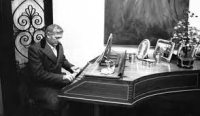Latest Sheet Music
Tom Harrell
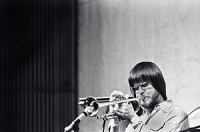
Tom Harrell (born June 16, 1946) is a renowned American post-bop jazz trumpeter, flugelhornist, composer and arranger.
Antonio Bazzini
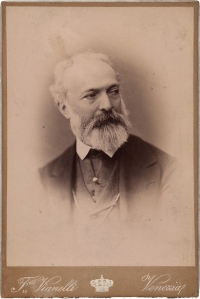
Antonio Bazzini (11 March 1818 – 10 February 1897) was an Italian violinist, composer and teacher. As a composer his most enduring work is his chamber music which has earned him a central place in the Italian instrumental renaissance of the 19th century. However, his success as a composer was overshadowed by his reputation as one of the finest concert violinists of the nineteenth century. He also contributed to a portion of Messa per Rossini, specifically the first section of II. Sequentia, Dies Irae.
Aram Khachaturian
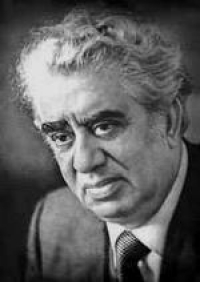
Aram Ilyich Khachaturian (Armenian: Արամ Խաչատրյան; Russian: Ара́м Ильи́ч Хачатуря́н; June 6 1903 – May 1, 1978) was a prominent Soviet Armenian composer. Khachaturian's works were often influenced by classical Russian music and Armenian folk music. He is most famous for the Adagio of Spartacus and Phrygia from his ballet Spartacus, and for the "Sabre Dance" from his ballet Gayane and the adagio from the same ballet, much used in films since its first use in Stanley Kubrick's 2001: A Space Odyssey.
Traditional

Muzio Clementi
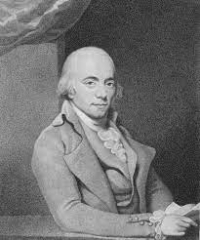
Muzio Filippo Vincenzo Francesco Saverio Clementi (23 January 1752 – 10 March 1832) was an Italian composer, virtuoso pianist, pedagogue, conductor, music publisher, editor, and piano manufacturer, who was mostly active in England.
Encouraged to study music by his father, he was sponsored as a young composer by Sir Peter Beckford who took him to England to advance his studies. Later, he toured Europe numerous times from his long-standing base in London. It was on one of these occasions, in 1781, that he engaged in a piano competition with Wolfgang Amadeus Mozart.
Encouraged to study music by his father, he was sponsored as a young composer by Sir Peter Beckford who took him to England to advance his studies. Later, he toured Europe numerous times from his long-standing base in London. It was on one of these occasions, in 1781, that he engaged in a piano competition with Wolfgang Amadeus Mozart.
Astor Piazzolla

Ástor Pantaleón Piazzolla (March 11, 1921 – July 4, 1992) was an Argentine tango composer and bandoneón player. His oeuvre revolutionized the traditional tango into a new style termed nuevo tango, incorporating elements from jazz and classical music. An excellent bandoneonist, he regularly performed his own compositions with different ensembles.
Piazzolla's nuevo tango was distinct from the traditional tango in its incorporation of elements of jazz, its use of extended harmonies and dissonance, its use of counterpoint, and its ventures into extended compositional forms. As Argentine psychoanalyst Carlos Kuri has pointed out, Piazzolla's fusion of tango with this wide range of other recognizable Western musical elements was so successful that it produced a new individual style transcending these influences. It is precisely this success, and individuality, that makes it hard to pin down where particular influences reside in his compositions, but some aspects are clear. The use of the passacaglia technique of a circulating bass line and harmonic sequence, invented and much used in 17th and 18th century baroque music but also central to the idea of jazz "changes", predominates in most of Piazzolla's mature compositions. Another clear reference to the baroque is the often complex and virtuosic counterpoint that sometimes follows strict fugal behavior but more often simply allows each performer in the group to assert his voice. A further technique that emphasises this sense of democracy and freedom among the musicians is improvisation that is borrowed from jazz in concept, but in practice involves a different vocabulary of scales and rhythms that stay within the parameters of the established tango sound-world. Pablo Ziegler has been particularly responsible for developing this aspect of the style both within Piazzolla's groups and since the composer's death.
Piazzolla's nuevo tango was distinct from the traditional tango in its incorporation of elements of jazz, its use of extended harmonies and dissonance, its use of counterpoint, and its ventures into extended compositional forms. As Argentine psychoanalyst Carlos Kuri has pointed out, Piazzolla's fusion of tango with this wide range of other recognizable Western musical elements was so successful that it produced a new individual style transcending these influences. It is precisely this success, and individuality, that makes it hard to pin down where particular influences reside in his compositions, but some aspects are clear. The use of the passacaglia technique of a circulating bass line and harmonic sequence, invented and much used in 17th and 18th century baroque music but also central to the idea of jazz "changes", predominates in most of Piazzolla's mature compositions. Another clear reference to the baroque is the often complex and virtuosic counterpoint that sometimes follows strict fugal behavior but more often simply allows each performer in the group to assert his voice. A further technique that emphasises this sense of democracy and freedom among the musicians is improvisation that is borrowed from jazz in concept, but in practice involves a different vocabulary of scales and rhythms that stay within the parameters of the established tango sound-world. Pablo Ziegler has been particularly responsible for developing this aspect of the style both within Piazzolla's groups and since the composer's death.
Chopin

Frédéric Chopin (1 March 1810 – 17 October 1849) was a Polish composer and virtuoso pianist of the Romantic period. He is widely regarded as the greatest Polish composer, and ranks as one of music's greatest tone poets.
He was born in the village of Żelazowa Wola, in the Duchy of Warsaw, to a Polish mother and French-expatriate father, and in his early life was regarded as a child-prodigy pianist. In November 1830, at the age of 20, Chopin went abroad; following the suppression of the Polish November Uprising of 1830–31, he became one of many expatriates of the Polish "Great Emigration."
In Paris, he made a comfortable living as a composer and piano teacher, while giving few public performances. A Polish patriot,
Chopin's extant compositions were written primarily for the piano as a solo instrument. Though technically demanding, Chopin's style emphasizes nuance and expressive depth rather than virtuosity. Chopin invented musical forms such as the ballade and was responsible for major innovations in forms such as the piano sonata, waltz, nocturne, étude, impromptu and prelude. His works are mainstays of Romanticism in 19th-century classical music.
He was born in the village of Żelazowa Wola, in the Duchy of Warsaw, to a Polish mother and French-expatriate father, and in his early life was regarded as a child-prodigy pianist. In November 1830, at the age of 20, Chopin went abroad; following the suppression of the Polish November Uprising of 1830–31, he became one of many expatriates of the Polish "Great Emigration."
In Paris, he made a comfortable living as a composer and piano teacher, while giving few public performances. A Polish patriot,
Chopin's extant compositions were written primarily for the piano as a solo instrument. Though technically demanding, Chopin's style emphasizes nuance and expressive depth rather than virtuosity. Chopin invented musical forms such as the ballade and was responsible for major innovations in forms such as the piano sonata, waltz, nocturne, étude, impromptu and prelude. His works are mainstays of Romanticism in 19th-century classical music.
Carrie Underwood
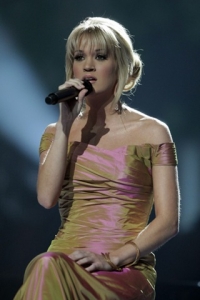
Carrie Marie Underwood (born March 10, 1983 in Muskogee, Oklahoma) is an American country singer-songwriter. She rose to fame as the winner of the fourth season of American Idol, and has become a multi-platinum selling recording artist and a multiple Grammy Award winner. Her debut album, Some Hearts, was certified seven times platinum and is the fastest selling debut country album in Nielsen SoundScan history.
Her second album, Carnival Ride, was released on October 23, 2007. It has so far sold about 2 million copies To date, Underwood has sold over 11 million records in the United States. Underwood was inducted as a member of the Grand Ole Opry on May 10, 2008.
Her second album, Carnival Ride, was released on October 23, 2007. It has so far sold about 2 million copies To date, Underwood has sold over 11 million records in the United States. Underwood was inducted as a member of the Grand Ole Opry on May 10, 2008.
Heinrich Ignaz Franz Biber
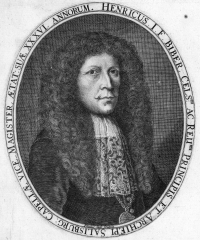
Heinrich Ignaz Franz Biber (12 August 1644 (baptised) – 3 May 1704) was a Bohemian-Austrian composer and violinist. Born in the small Bohemian town of Wartenberg (now Stráž pod Ralskem), Biber worked in Graz and Kremsier (now Kroměříž) before he illegally left his Kremsier employer, Prince-Bishop Carl Liechtenstein-Kastelkorn, and settled in Salzburg. He remained there for the rest of his life, publishing much of his music but apparently seldom, if ever, giving concert tours.
All-4-One
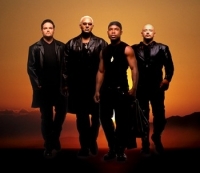
All-4-One is a Grammy Award-winning male R&B group best known for their hit single "I Swear" from their self-titled 1994 debut album.
The group comprises Tony Borowiak, Jamie Jones, Delious Kennedy, and Alfred Nevarez, all from the Antelope Valley and Victor Valley, California areas, but are based in Glendale, California.
The group comprises Tony Borowiak, Jamie Jones, Delious Kennedy, and Alfred Nevarez, all from the Antelope Valley and Victor Valley, California areas, but are based in Glendale, California.
Julio Domínguez
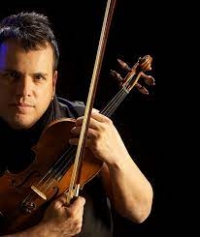
Violinist, Philharmonic Orchestra of Buenos Aires; Member, Gianneo String Quartet (which has toured to the major Chamber festivals in the world spreading Argentine music). Awards: Argentine Society of Music Critics Prize (three times, with Gianneo). Training: violin and viola at the Menuhin Academy (London, Switzerland) and in the Reina Sofia School in Madrid.
Jeroen van Vliet
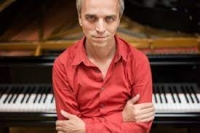
Jeroen van Vliet (Rosmalen, 1965) is een Nederlands jazz-pianist. In 2014 kreeg hij de belangrijkste Nederlandse jazz-prijs toegekend, de Boy Edgar prijs. In 2015 staat hij solo op het North Sea Jazz Festival.
Scott Joplin

Scott Joplin (between June 1867 and January 1868 – April 1, 1917) was an American musician and composer of ragtime music. He remains the best-known ragtime figure and is regarded as one of the three most important composers of classic ragtime, along with James Scott and Joseph Lamb, and also a precursor to Stride Piano. Decades after his death, his music enjoyed a considerable surge of popularity and critical respect in the 1970s, especially for his most famous composition, "The Entertainer."
Even at the time of publication, Joplin's publisher John Stark was claiming that the rags had obtained classical status, and "lifted ragtime from its low estate and lined it up with Beethoven and Bach".
Even at the time of publication, Joplin's publisher John Stark was claiming that the rags had obtained classical status, and "lifted ragtime from its low estate and lined it up with Beethoven and Bach".
Adam la Halle
Adam de la Halle, also known as Adam le Bossu, was a French trouvère, poet and musician. Adam's literary and musical works include chansons and jeux-partis in the style of the trouvères; polyphonic ..
Alicia Keys

Alicia J. Augello-Cook (born January 25, 1981), and has won numerous awards, including eleven Grammy Awards, seventeen Billboard Music Awards, three American Music Awards.
Her debut album Songs in A Minor was a worldwide success, selling nearly 11 millions albums, and received five Grammy Awards in 2002, with Alicia winning Best New Artist and also Song of the Year for "Fallin'".
Her debut album Songs in A Minor was a worldwide success, selling nearly 11 millions albums, and received five Grammy Awards in 2002, with Alicia winning Best New Artist and also Song of the Year for "Fallin'".
Paul Hindemith
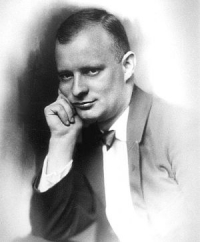
Paul Hindemith (16 November 1895 – 28 December 1963) was a German composer, violist, violinist, teacher, music theorist and conductor.
Charles Gounod

Charles-François Gounod (/ɡuːˈnoʊ/; French: ; 17 June 1818 – 17 or 18 October 1893) was a French composer, best known for his Ave Maria, based on a work by Bach, as well as his opera Faust. Another opera by Gounod that is still performed today is Roméo et Juliette.
Gounod died at Saint-Cloud in 1893, after a final revision of his twelve operas. His funeral took place ten days later at the Church of the Madeleine, with Camille Saint-Saëns playing the organ and Gabriel Fauré conducting. He was buried at the Cimetière d'Auteuil in Paris.
Gounod died at Saint-Cloud in 1893, after a final revision of his twelve operas. His funeral took place ten days later at the Church of the Madeleine, with Camille Saint-Saëns playing the organ and Gabriel Fauré conducting. He was buried at the Cimetière d'Auteuil in Paris.
Billy Preston
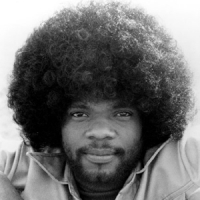
William Everett Preston (September 2, 1946 – June 6, 2006) was an American musician whose work included R&B, rock, soul, funk, and gospel. Preston was a top session keyboardist in the 1960s, during which he backed artists such as Little Richard, Sam Cooke, Ray Charles, and the Beatles. He then went on to achieve fame as a solo artist, with hit pop singles including "That's the Way God Planned It", "Outa-Space", "Will It Go Round in Circles", "Space Race", and "Nothing from Nothing". Additionally, Preston co-wrote "You Are So Beautiful", which became a number 5 hit for Joe Cocker; Stephen Stills asked Preston if he could use his phrase "if you can't be with the one you love, love the one you're with" and created the hit song.
Preston was the only musician to be credited on a Beatles recording other than the group's four members: the group's number-one hit "Get Back" is credited to "The Beatles with Billy Preston". Preston continued to record and perform with other artists, notably George Harrison after the Beatles' break-up, and Eric Clapton, and he played keyboards for the Rolling Stones on many of the group's albums and tours during the 1970s.
Preston was the only musician to be credited on a Beatles recording other than the group's four members: the group's number-one hit "Get Back" is credited to "The Beatles with Billy Preston". Preston continued to record and perform with other artists, notably George Harrison after the Beatles' break-up, and Eric Clapton, and he played keyboards for the Rolling Stones on many of the group's albums and tours during the 1970s.
The Jungle Book
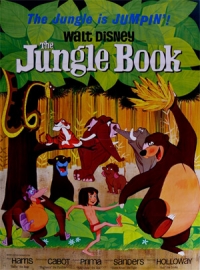
The Jungle Book is a 1967 animated feature film, released on October 18, 1967. The 19th animated feature in the Disney animated features canon, it was the last to be produced by Walt Disney, who died during its production. It was inspired by the stories about the feral child Mowgli from the book of the same name by Rudyard Kipling. The movie remains one of Disney's most popular, and contained a number of classic songs, including "The Bare Necessities" and "I Wan'na Be Like You". Most of the songs are by Richard M. Sherman and Robert B. Sherman. The film was directed by Wolfgang Reitherman; his son, Bruce Reitherman, provided Mowgli's voice.
Seo Jin Young

Seo Jin Young Singer Songs Missing U Summer Scent Original Sound Track A Little Uh Jjuh Myun.
Bix Beiderbecke
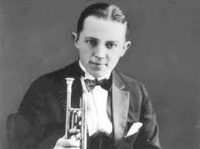
Leon Bismark "Bix" Beiderbecke was an American jazz cornetist, pianist and composer. Beiderbecke was one of the most influential jazz soloists of the 1920s, a cornet player noted for an inventive lyrical ...
Carlos Gardel

Carlos Gardel (11 December 1890 – 24 June 1935) was a singer, songwriter and actor, and is perhaps the most prominent figure in the history of tango. The unerring musicality of Gardel's baritone voice and the dramatic phrasing of his lyrics made miniature masterpieces of his hundreds of three-minute tango recordings. Together with lyricist and long-time collaborator Alfredo Le Pera, Gardel wrote several classic tangos, most notably "Mi Buenos Aires querido", "Por una cabeza" and "El día que me quieras".
Gardel died in an airplane crash at the height of his career, becoming an archetypal tragic hero mourned throughout Latin America. For many, Gardel embodies the soul of the tango style. He is commonly referred to as "Carlitos", "El Zorzal" (The Song Thrush), "The King of Tango", "El Mago" (The Magician) and "El Mudo" (The Mute).
Gardel died in an airplane crash at the height of his career, becoming an archetypal tragic hero mourned throughout Latin America. For many, Gardel embodies the soul of the tango style. He is commonly referred to as "Carlitos", "El Zorzal" (The Song Thrush), "The King of Tango", "El Mago" (The Magician) and "El Mudo" (The Mute).
Vieät Anh

Việt Anh Musician Born: March 1976 (age 47 years), Hanoi, Vietnam Movies: Little Sunshine 2 Songs Không Còn Mùa Thu
Hoa Có Vàng Nơi Ấy Tôi thấy cây cần trên cỏ xanh Chờ mẹ ngày tan nắng.
Hoa Có Vàng Nơi Ấy Tôi thấy cây cần trên cỏ xanh Chờ mẹ ngày tan nắng.
Schumann

Robert Schumann, sometimes given as Robert Alexander Schumann, (June 8, 1810 – July 29, 1856) was a German composer, aesthete and influential music critic. He is one of the most famous Romantic composers of the 19th century.
He had hoped to pursue a career as a virtuoso pianist, having been assured by his teacher Friedrich Wieck that he could become the finest pianist in Europe after only a few years of study with him. However, a hand injury prevented those hopes from being realized, and he decided to focus his musical energies on composition. Schumann's published compositions were, until 1840, all for the piano; he later composed works for piano and orchestra, many lieder (songs for voice and piano), four symphonies, an opera, and other orchestral, choral and chamber works. His writings about music appeared mostly in the Neue Zeitschrift für Musik ("The New Journal for Music"), a Leipzig-based publication that he jointly founded.
In 1840, after a long and acrimonious legal battle with his piano instructor Friedrich Wieck, Schumann married Wieck's daughter, pianist Clara Wieck, a considerable figure of the Romantic period in her own right. Clara Wieck showcased many works by her husband as well. For the last two years of his life, after an attempted suicide, Schumann was confined to a mental institution.
He had hoped to pursue a career as a virtuoso pianist, having been assured by his teacher Friedrich Wieck that he could become the finest pianist in Europe after only a few years of study with him. However, a hand injury prevented those hopes from being realized, and he decided to focus his musical energies on composition. Schumann's published compositions were, until 1840, all for the piano; he later composed works for piano and orchestra, many lieder (songs for voice and piano), four symphonies, an opera, and other orchestral, choral and chamber works. His writings about music appeared mostly in the Neue Zeitschrift für Musik ("The New Journal for Music"), a Leipzig-based publication that he jointly founded.
In 1840, after a long and acrimonious legal battle with his piano instructor Friedrich Wieck, Schumann married Wieck's daughter, pianist Clara Wieck, a considerable figure of the Romantic period in her own right. Clara Wieck showcased many works by her husband as well. For the last two years of his life, after an attempted suicide, Schumann was confined to a mental institution.
Ne-Yo
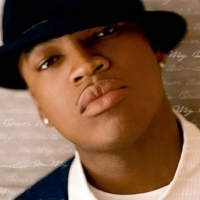
Shaffer Chimere Smith (October 18, 1982), better known by his stage name Ne-Yo, is an American R&B and pop singer-songwriter, record producer, dancer, actor and occasional rapper.
Ne-yo began music as a rapper and had one hit single called "Boy Can't You See Im Black?" but after that never made it big so decided to call it quits on the rapping and began to turn his attention to singing.
Ne-Yo's debut album, In My Own Words, was released in early 2006 through Def Jam Recordings, and debuted at number one on Billboard 200, selling over 301,000 copies in the first week and certified platinum, selling nearly 2 million copies in the US and 4 million worldwide. During the same week, Ne-Yo's Stargate-produced second single "So Sick" reached number one on the Billboard Hot 100 chart. Ne-Yo is as famous for his songwriting as for his singing, writing such songs as Rihanna's top ten hit "Unfaithful" and number-one hit Take a Bow, Mario's "Let Me Love You", Mario Vazquez's "Gallery", Paula DeAnda's "Walk Away (Remember Me)", and Beyoncé's Billboard Hot 100 ten-week number-one hit "Irreplaceable".
His second album, Because of You, was released on May 1, 2007. The first single from the platinum-selling album was "Because of You". He has also written songs for Whitney Houston, Celine Dion, Britney Spears, Corbin Bleu, and Enrique Iglesias for their upcoming albums. Smith also has stated that he will write songs for Craig David, Usher, Chris Brown, Jennifer Hudson, Leona Lewis, and he recently confirmed that he has been contacted by producer will.i.am to work on Michael Jackson's upcoming album.
Ne-yo began music as a rapper and had one hit single called "Boy Can't You See Im Black?" but after that never made it big so decided to call it quits on the rapping and began to turn his attention to singing.
Ne-Yo's debut album, In My Own Words, was released in early 2006 through Def Jam Recordings, and debuted at number one on Billboard 200, selling over 301,000 copies in the first week and certified platinum, selling nearly 2 million copies in the US and 4 million worldwide. During the same week, Ne-Yo's Stargate-produced second single "So Sick" reached number one on the Billboard Hot 100 chart. Ne-Yo is as famous for his songwriting as for his singing, writing such songs as Rihanna's top ten hit "Unfaithful" and number-one hit Take a Bow, Mario's "Let Me Love You", Mario Vazquez's "Gallery", Paula DeAnda's "Walk Away (Remember Me)", and Beyoncé's Billboard Hot 100 ten-week number-one hit "Irreplaceable".
His second album, Because of You, was released on May 1, 2007. The first single from the platinum-selling album was "Because of You". He has also written songs for Whitney Houston, Celine Dion, Britney Spears, Corbin Bleu, and Enrique Iglesias for their upcoming albums. Smith also has stated that he will write songs for Craig David, Usher, Chris Brown, Jennifer Hudson, Leona Lewis, and he recently confirmed that he has been contacted by producer will.i.am to work on Michael Jackson's upcoming album.
Laurens van rooyen
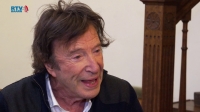
Laurens van Rooyen (Utrecht, 27 March 1935) is a Dutch pianist and composer. He is known for his cooperation in the theater with Herman van Veen. He composed many pieces for the piano and wrote the score for several Dutch films. He wrote two books on his experiences as a musician.
Bill Evans

William John Evans, known as Bill Evans (August 16, 1929 – September 15, 1980) was an American jazz pianist. His use of impressionist harmony, inventive interpretation of traditional jazz repertoire, and trademark rhythmically independent, "singing" melodic lines influenced a generation of pianists, including Chick Corea, Herbie Hancock, John Taylor, Steve Kuhn, Don Friedman, Denny Zeitlin, Bobo Stenson and Keith Jarrett, as well as guitarists Lenny Breau and Pat Metheny. The music of Bill Evans continues to inspire younger pianists like Marcin Wasilewski, Fred Hersch, Ray Reach, Bill Charlap, Lyle Mays, Eliane Elias and arguably Brad Mehldau, early in his career.
Evans is an inductee of the Down Beat Jazz Hall of Fame.
Evans is an inductee of the Down Beat Jazz Hall of Fame.
David Benoit
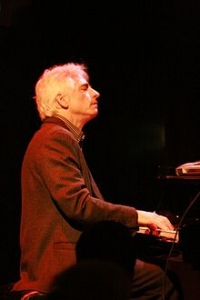
David Bryan Benoit (born August 18, 1953) is an American jazz pianist, composer and producer from Los Angeles, California. Benoit has charted over 25 albums since 1980, and has been nominated for three Grammy Awards. He is also music director for the Asia America Symphony Orchestra and the Asia America Youth Orchestra.
Naoki Kodaka
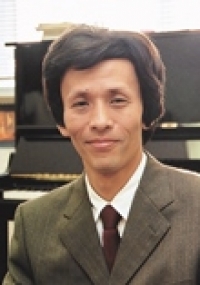
Naoki Kodaka (小高 直樹, Kodaka Naoki) is a Japanese video game music composer who worked for Sunsoft. He is currently a professor of music at several universities and occasionally composes new music for special events..Kodaka first learned to play piano during his early childhood but quit formal training at age 7, finding that he preferred to play popular music. He later resumed his classical studies in high school and would go on to major in composition at the Aichi Prefectural University of the Arts. Following his graduation, he briefly worked on producing music for radio and television. Among his classmates, Kodaka was known to spend much of his spare time in arcades, and this ultimately attracted Sunsoft to hire him as a video game composer.
Doan Man
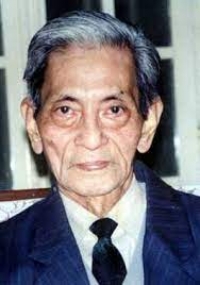
Doan Man Musical artist Born: October 15, 1919, Hoàng Văn Thụ, Vietnam Died: April 13, 2007, Hanoi, Vietnam
Carl Bohm
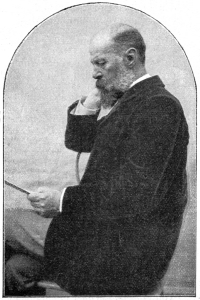
Carl Bohm (also known as Henry Cooper and Karl Bohm) (11 September 1844 – 4 April 1920) was a German pianist and composer.Bohm is regarded as one of the leading German songwriters of the 19th century, and wrote such works as Still as the Night, Twilight, May Bells, Enfant Cheri and The Fountain.The Oxford Companion to Music says that Bohm was "a German composer of great fecundity and the highest salability... He occupied an important position in the musical commonwealth inasmuch as his publisher, N. Simrock, declared that the profits on his compositions provided the capital for the publication of those of Brahms.
Arthur Foote
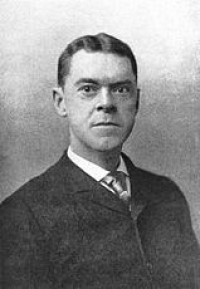
Arthur William Foote (5 March 1853 in Salem, Massachusetts – 8 April 1937 in Boston, Massachusetts) was an American classical composer, and a member of the "Boston Six." The other five were George Whitefield Chadwick, Amy Beach, Edward MacDowell, John Knowles Paine, and Horatio Parker.
Ella Fitzgerald
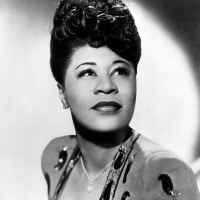
Ella Jane Fitzgerald (April 25, 1917 – June 15, 1996) was an American jazz singer sometimes referred to as the First Lady of Song, Queen of Jazz, and Lady Ella. She was noted for her purity of tone, impeccable diction, phrasing, intonation, and a "horn-like" improvisational ability, particularly in her scat singing. After a tumultuous adolescence, Fitzgerald found stability in musical success with the Chick Webb Orchestra, performing across the country but most often associated with the Savoy Ballroom in Harlem. Her rendition of the nursery rhyme "A-Tisket, A-Tasket" helped boost both her and Webb to national fame. After taking over the band when Webb died, Fitzgerald left it behind in 1942 to start her solo career.
Owl City
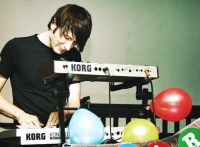
Owl City is an American synthpop musical project by Adam Young. Young started out making music in his parents' basement in Owatonna, Minnesota which he claims is a result of his insomnia.
Young's influences are disco and European electronic music. After two independent albums, Owl City gained mainstream popularity from the 2009 major label debut album Ocean Eyes, which spawned the U.S. Billboard Hot 100 #1 hit single "Fireflies". "Fireflies" topped the US and Canadian charts and became the most-downloaded song on iTunes in the US, and the album Ocean Eyes reached the top ten on the US album charts and topped the US electronic charts. Ocean Eyes also reached Amazon MP3's top 10 most downloaded album list. By December 2009, it was certified Gold in the United States.
Young's influences are disco and European electronic music. After two independent albums, Owl City gained mainstream popularity from the 2009 major label debut album Ocean Eyes, which spawned the U.S. Billboard Hot 100 #1 hit single "Fireflies". "Fireflies" topped the US and Canadian charts and became the most-downloaded song on iTunes in the US, and the album Ocean Eyes reached the top ten on the US album charts and topped the US electronic charts. Ocean Eyes also reached Amazon MP3's top 10 most downloaded album list. By December 2009, it was certified Gold in the United States.
The Music Tech Dictionary
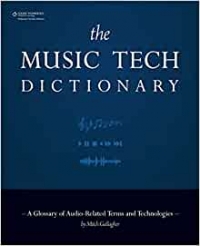
The Music Tech Dictionary" provides the definitive glossary of music technology and pro audio topics and terms. It focuses on the terminology, techniques, and formats that are common in the audio and music technology field, and offers concise, pithy explanations of what each term represents. Users will be able to look up any music software, music technology, or audio related term they run across in their software, in articles, or in studios, for a short, complete overview.
Clint Black
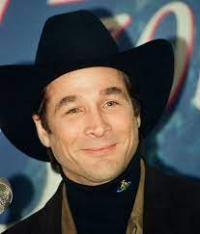
Clint Patrick Black (born February 4, 1962) is an American country music singer, songwriter, musician, multi-instrumentalist, record producer, and actor. Signed to RCA Nashville in 1989, Black's debut album Killin' Time produced four straight number one singles on the US Billboard Hot Country Singles & Tracks charts. Although his momentum gradually slowed throughout the 1990s, Black consistently charted hit songs into the 2000s. He has had more than 30 singles on the US Billboard country charts, twenty-two of which have reached number one, in addition to having released twelve studio albums and several compilation albums. In 2003, Black founded his own record label, Equity Music Group. Black has also ventured into acting, having made appearances in a 1993 episode of the TV series Wings and in the 1994 film Maverick, as well as a starring role in 1998's Still Holding On: The Legend of Cadillac Jack.
Giovanni Bononcini
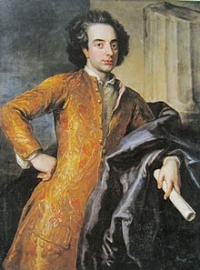
Giovanni Bononcini (or Buononcini) (18 July 1670 – 9 July 1747) (sometimes cited also as Giovanni Battista Bononcini) was an Italian Baroque composer, cellist, singer and teacher, one of a family of string players and composers.
Stephen Brodsky

Stephen Brodsky is an American rock musician best known as a member of Cave In, Mutoid Man, New Idea Society and Old Man Gloom. He also has a solo career and is a former member of Converge, Kid Kilowatt, Parasite and Pet Genius.
David Meece
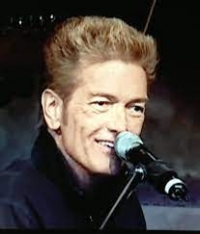
David Meece is an American contemporary Christian musician who enjoyed success in the mid 1980s throughout the early 2000s with more than 30 Top 10 hits.
Andre Waignien

André Waignein (28 January 1942 – 22 November 2015) was a Belgian composer, conductor, trumpeter, and musicologist. He is well known for his symphonies with over six hundred compositions at the time of his death. Waignein's symphonies were known to be lively and upbeat, and they reflected his character. He was a professor at the Conservatoire Royal de Bruxelles and a director at the Conservatoire de Tournai He wrote under the pseudonyms of Rita Defoort (the name of his wife), Rob Ares, Luc Gistel, Roland Kernen, and Larry Foster.
Mariah Carey

Mariah Carey (born March 27, 1970) is an American singer, songwriter, record producer, and actress. She made her recording debut in 1990 under the guidance of Columbia Records executive Tommy Mottola, and became the first recording artist to have her first five singles top the U.S. Billboard Hot 100 chart. Following her marriage to Mottola in 1993, a series of hit records established her position as Columbia's highest-selling act. According to Billboard magazine, she was the most successful artist of the 1990s in the United States.
Following her separation from Mottola in 1997, Carey introduced elements of hip hop into her album work, to much initial success, but her popularity was in decline when she left Columbia in 2001, and she was dropped by Virgin Records the following year after a highly publicized physical and emotional breakdown, as well as the poor reception given to Glitter, her film and soundtrack project. In 2002, Carey signed with Island Records, and after a relatively unsuccessful period, she returned to pop music in 2005.
Carey was named the best-selling female pop artist of the millennium at the 2000 World Music Awards. She has had the most number-one singles for a solo artist in the United States (eighteen; second artist overall behind The Beatles), where, according to the Recording Industry Association of America, she is the third best-selling female and sixteenth overall recording artist. In addition to her commercial accomplishments, Carey has earned five Grammy Awards, and is well-known for her vocal range, power, melismatic style, and use of the whistle register.
Following her separation from Mottola in 1997, Carey introduced elements of hip hop into her album work, to much initial success, but her popularity was in decline when she left Columbia in 2001, and she was dropped by Virgin Records the following year after a highly publicized physical and emotional breakdown, as well as the poor reception given to Glitter, her film and soundtrack project. In 2002, Carey signed with Island Records, and after a relatively unsuccessful period, she returned to pop music in 2005.
Carey was named the best-selling female pop artist of the millennium at the 2000 World Music Awards. She has had the most number-one singles for a solo artist in the United States (eighteen; second artist overall behind The Beatles), where, according to the Recording Industry Association of America, she is the third best-selling female and sixteenth overall recording artist. In addition to her commercial accomplishments, Carey has earned five Grammy Awards, and is well-known for her vocal range, power, melismatic style, and use of the whistle register.
Liszt, Franz
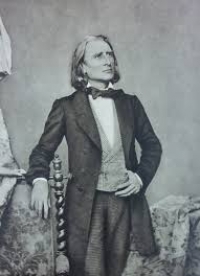
Franz Liszt (German: ; Hungarian: Liszt Ferencz, in modern usage Liszt Ferenc ; 22 October 1811 – 31 July 1886) was a Hungarian composer, virtuoso pianist, conductor, music teacher, arranger, and organist of the Romantic era. He was also a writer, a philanthropist, a Hungarian nationalist and a Franciscan tertiary.
Liszt gained renown in Europe during the early nineteenth century for his prodigious virtuosic skill as a pianist. He was a friend, musical promoter and benefactor to many composers of his time, including Frédéric Chopin, Richard Wagner, Hector Berlioz, Robert Schumann, Camille Saint-Saëns, Edvard Grieg, Ole Bull, Joachim Raff, Mikhail Glinka, and Alexander Borodin.
Liszt gained renown in Europe during the early nineteenth century for his prodigious virtuosic skill as a pianist. He was a friend, musical promoter and benefactor to many composers of his time, including Frédéric Chopin, Richard Wagner, Hector Berlioz, Robert Schumann, Camille Saint-Saëns, Edvard Grieg, Ole Bull, Joachim Raff, Mikhail Glinka, and Alexander Borodin.
Billy Joel

William Martin Joel (born May 9, 1949) is an American pianist and singer-songwriter. He released his first hit song, "Piano Man", in 1973. According to the RIAA, he is the sixth best-selling recording artist in the United States.
Joel had Top 10 hits in the '70s, '80s, and '90s; is a six-time Grammy Award winner, and has sold in excess of 150 million albums worldwide. He was inducted into the Songwriter's Hall of Fame (Class of 1992), the Rock and Roll Hall of Fame (Class of 1999), and the Long Island Music Hall of Fame (Class of 2006). Joel "retired" from recording pop music in 1993 but continued to tour (sometimes with Elton John). In 2001 he subsequently released Fantasies & Delusions, a CD of classical compositions for piano. In 2007 he returned to recording with a single entitled "All My Life," followed by an extensive "World Tour" from 2006-2008, covering many of the major world cities.
Joel had Top 10 hits in the '70s, '80s, and '90s; is a six-time Grammy Award winner, and has sold in excess of 150 million albums worldwide. He was inducted into the Songwriter's Hall of Fame (Class of 1992), the Rock and Roll Hall of Fame (Class of 1999), and the Long Island Music Hall of Fame (Class of 2006). Joel "retired" from recording pop music in 1993 but continued to tour (sometimes with Elton John). In 2001 he subsequently released Fantasies & Delusions, a CD of classical compositions for piano. In 2007 he returned to recording with a single entitled "All My Life," followed by an extensive "World Tour" from 2006-2008, covering many of the major world cities.
Yann Tiersen

Guillaume Yann Tiersen (born 23 June 1970) is a French musician and composer known internationally for composing the score to the Jean-Pierre Jeunet movie Amélie. His music is recognized by its use of a large variety of instruments in relatively minimalist compositions, often with a touch of either European classical music or French folk music, using primarily the piano, accordion or violin together with instruments like the melodica, xylophone, toy piano, ondes martenot, harpsichord and typewriter. His musical style is reminiscent of Frédéric Chopin, Erik Satie, Philip Glass and Michael Nyman.
Ludwig van Beethoven

Ludwig van Beethoven (/ˈlʊdvɪɡ væn ˈbeɪt(h)oʊvən/ (About this soundlisten); German: (About this soundlisten); baptised 17 December 1770 – 26 March 1827) was a German composer and pianist. A crucial figure in the transition between the classical and romantic eras in classical music, he remains one of the most recognized and influential musicians of this period, and is considered to be one of the greatest composers of all time.
Beethoven was born in Bonn, the capital of the Electorate of Cologne, and part of the Holy Roman Empire. He displayed his musical talents at an early age and was vigorously taught by his father Johann van Beethoven, and was later taught by composer and conductor Christian Gottlob Neefe. At age 21, he moved to Vienna and studied composition with Joseph Haydn. Beethoven then gained a reputation as a virtuoso pianist, and was soon courted by Prince Lichnowsky for compositions, which resulted in Opus 1 in 1795.
Beethoven was born in Bonn, the capital of the Electorate of Cologne, and part of the Holy Roman Empire. He displayed his musical talents at an early age and was vigorously taught by his father Johann van Beethoven, and was later taught by composer and conductor Christian Gottlob Neefe. At age 21, he moved to Vienna and studied composition with Joseph Haydn. Beethoven then gained a reputation as a virtuoso pianist, and was soon courted by Prince Lichnowsky for compositions, which resulted in Opus 1 in 1795.
Tim hughes
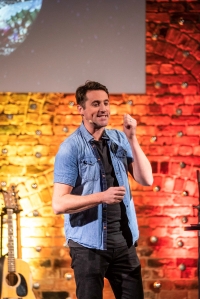
Timothy David Llewelyn Hughes (born 23 July 1977) is a British worship leader, singer, songwriter, and Anglican priest. Formerly the director of worship at Holy Trinity Brompton, a large Anglican church in central London, he has since been ordained as a minister in the Church of England and appointed Vicar of St Luke's, Gas Street Birmingham. He leads Worship Central, an international worship training and resource centre. Hughes has written a number of songs that are sung worldwide, including the Dove Award-winning "Here I Am to Worship", "Happy Day", "Beautiful One", "Jesus Saves", "At Your Name", and "The Way".
Kander and Ebb
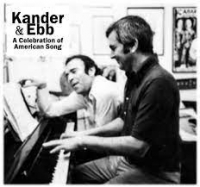
Kander and Ebb were a highly successful American songwriting team consisting of composer John Kander and lyricist Fred Ebb. Known primarily for their stage musicals, which include Cabaret and Chicago, Kander and Ebb also scored several movies, including Martin Scorsese's New York, New York.
Beast

Advertisement: Beast, also stylized as B2ST, is a six member boy band from South Korea that debuted in 2009 under Cube Entertainment. Their original name came from shortening "Boys 2 Search for Top", and their current name comes from both "Boys of the EAst Standing Tall" and the phrase "So beast".
High School Musical 2
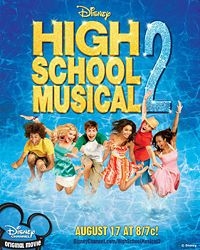
High School Musical 2 (also known as High School Musical 2: Sing It All Or Nothing!) is the sequel to the Disney Channel Original Movie, High School Musical. It debuted on August 17, 2007 on Disney Channel in the U.S., and on Family in Canada. The premiere brought in a total of 17.3 million viewers in the United States—almost 10 million more than its predecessor—making it, at the time, the highest-rated basic-cable broadcast in U.S. history.
Hiromi

Hiromi Uehara, known professionally as Hiromi, is a jazz composer and pianist born in Hamamatsu, Japan. She is known for her virtuosic technique, energetic live performances and blend of musical genres such as stride, post-bop, progressive rock, classical and fusion in her compositions.
Franz Xaver Gruber
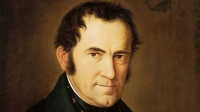
Franz Xaver Gruber, was an Austrian primary school teacher, church organist and composer in the village of Arnsdorf, who is best known for composing the music to "Stille Nacht"
 Sheet Music Mobile is a site for those who wants to access popular sheet music easily,
letting them download the sheet music for free for trial purposes.
It's completely free to download and try the listed sheet music, but you have to delete the files after 24 hours of trial.
Don't forget, if you like the piece of music you have just learned playing,
treat the artist with respect, and go buy the original sheet music.
Sheet Music Mobile is a site for those who wants to access popular sheet music easily,
letting them download the sheet music for free for trial purposes.
It's completely free to download and try the listed sheet music, but you have to delete the files after 24 hours of trial.
Don't forget, if you like the piece of music you have just learned playing,
treat the artist with respect, and go buy the original sheet music.

